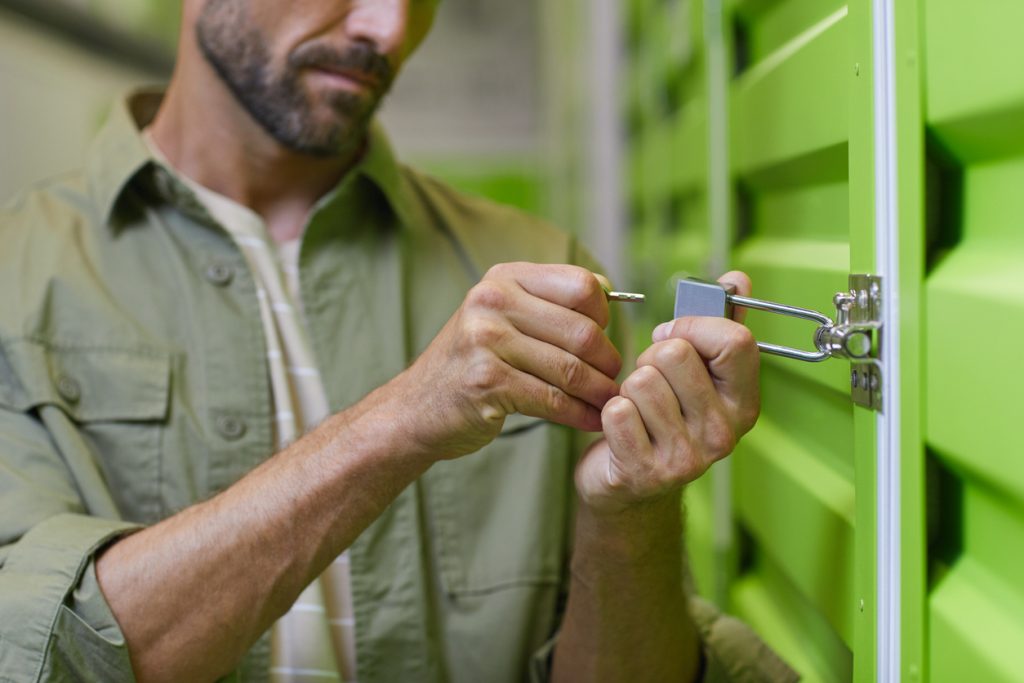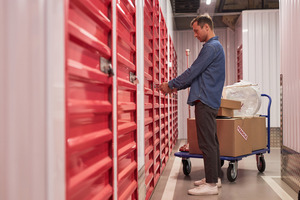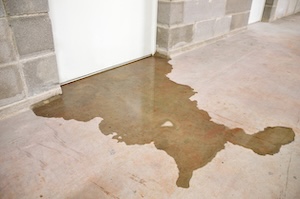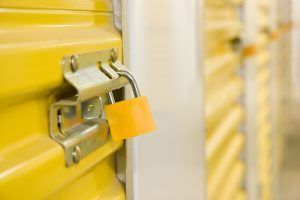Self-storage is a popular choice for people that need long-term storage, offering a convenient, cost-effective, and safe way to store belongings for longer periods of time. However, like many storage options, there are pros and cons to consider – here, we’ll explore the advantages and disadvantages of using self-storage for long-term storage, as well as potential other options available to you.
Whether you’re moving to a smaller home, going on an extended trip, or simply running out of space, long-term storage can provide a safe and secure place to keep your items. However, it is not necessarily the best option for everyone.
Before you commit to storing your belongings for an extended period of time, it’s important to consider the pros and cons of long-term storage.
Pros of Long-Term Storage
If you are looking for a way to store your belongings for an extended period, then long-term storage is an excellent option for you. Here are some of the benefits:
1. Flexibility
Self-storage gives you a great degree of flexibility when storing certain items for long periods of time. You can choose from different sizes, different types of units, and even units with features such as climate control to ensure what you have stored stays in good condition. Whatever the reason you’re in need of long-term storage for, a self-storage unit provides a degree of flexibility rarely found elsewhere.
2. Cost-Effective
Long-term storage is a cost-effective solution for storing your belongings, with the average cost of a 50-square-foot unit between £100 and £140 per month. For many situations, this is a far cheaper deal than if you were to rent any other premises with the same amount of size for storage.
Long-term storage also offer flexible options, so they can be easily changed if your personal circumstances do.
3. Convenience and Accessibility
Long-term storage facilities offer convenient and accessible storage solutions for a wide range of contract lengths (anywhere from a week to renting your units for years!). Most long-term storage facilities offer 24/7 surveillance and security measures to ensure the safety of your belongings, with 24/7 for the ultimate convenienc.
Whether you are moving home, downsizing, or decluttering your home, long-term storage offers a practical solution that is, simply put, more convenient than a vast range of other storage options. You can come and go as you wish, you can access your unit whenever you need to, and you can extend your contract if your circumstances change.
4. Preservation of Valuable Items
This advantage may only apply to some, but long-term storage can also help preserve valuable items, such as family heirlooms, antiques, and collectibles. These items require special care and attention to prevent damage from moisture, dust, and pests.
Long-term storage facilities offer climate-controlled units that maintain optimal temperature and humidity levels, protecting your belongings from potential environmental damage.
Drawbacks of Long-Term Storage
However, while long-term storage is the common sense solution for many, it does have certain drawbacks worth considering too.
1. Risk of Damage or Loss
One of the biggest risks associated with long-term storage is the potential for damage or loss of your items. Even if you take all the necessary precautions to protect your items, accidents can still happen. For example, if you store your items in a storage unit that is not climate-controlled, extreme temperatures or humidity levels can damage your items over time.
2. Accumulation of Dust and Dirt
Another drawback of long-term storage is the accumulation of dust and dirt on your items. Over time, dust and dirt can build up on your items, which can be difficult to remove.
This is especially true if you are storing items such as furniture or electronics, which can attract dust and dirt more easily.
3. Potential for Theft or Vandalism
Finally, there is always a risk of theft or vandalism when storing your items in a long-term storage facility. While most storage facilities have security measures in place to prevent theft and vandalism, there is always a chance that your items could be targeted.
It is important to choose a storage facility that has good security measures in place, such as surveillance cameras, security guards, and secure locks on storage units.
4. Space limitations
Self-storage units are undeniably flexible and convenient options for storage, but it’s important to be aware that there are space limitations on how much you can put into storage. If you pick a smaller storage unit, for example, you’ll need to move everything all over again if you run out of space a few months down the line.
By understanding these risks associated with long-term storage, you can make an informed decision about whether it is the right option for you.
Other Factors to Consider Before Opting for Long-Term Storage
When considering long-term storage for your belongings, there are several factors to consider. Here are some important factors that you should keep in mind before opting for long-term storage.
Type of Items to be Stored
The type of items you plan to store will determine the type of storage unit you need. For example, if you plan to store items that are sensitive to temperature and humidity, such as antiques or artwork, you will need a climate-controlled storage unit.
On the other hand, for items not sensitive to temperature and humidity- such as furniture or household appliances- standard storage should meet your needs.
Duration of Storage
The duration of storage is another important factor to consider. If you plan to store your items for a short period, such as a few months, you may not need to worry about certain features, such as climate control.
However, if you plan to store your items for a longer period, such as a year or more, you may need to consider features such as climate control, as well as security measures to protect your items from theft or damage.
Storage Facility Features
The features offered by the storage facility are also important to consider. Some features to look out for include:
- Security measures, such as CCTV cameras, security guards, and secure access systems
- Climate control, which can help protect your items from temperature and humidity fluctuations
- Lighting, which can make it easier to access your unit, especially if you need to visit it after dark
- Accessibility, such as drive-up access or 24-hour access, can make it easier to move your items in and out of the unit
By considering these factors before opting for long-term storage, you can ensure that your items are stored safely and securely, and that you choose the right storage unit for your needs.
Tips for Successful Long-Term Storage
When it comes to long-term storage, proper planning can make all the difference in the safety and security of your belongings. Here are some tips to help you successfully store your items for an extended period of time.
Proper Packing and Labelling
One of the most important things you can do to ensure the safety of your items during long-term storage is to pack them properly. Use sturdy boxes designed for storage, rather than flimsy cardboard boxes that may break down over time.
Label each box clearly with its contents, and use packing materials like bubble wrap or packing peanuts to protect fragile items.
To make unpacking easier, consider creating an inventory of the items you’re storing. This can be as simple as a list of each box and its contents, or you can use a more detailed spreadsheet or database to track each item individually.
Regular Cleaning and Maintenance
Even if you’re storing items that don’t require regular maintenance or cleaning, it’s important to check on them periodically to ensure they’re still in good condition. This is especially important if you’re storing items like electronics or furniture, which may be susceptible to damage from dust, moisture, or pests.
Set a schedule for checking on your items, and give each item a quick inspection for any signs of damage or deterioration. If you notice any issues, address them promptly to prevent further damage.
Insurance Coverage
Finally, consider investing in insurance coverage for your stored items.
Having insurance coverage can give you peace of mind knowing that your belongings are protected in case of theft, damage, or other unforeseen events.
Our article on “6 Things To Consider When Buying Storage Insurance” has all the information you need to find the right policy for your particular needs.
Our storage insurance includes theft, fire, flood, pests, and more, with no hidden fees or excess. What you see is what you pay, and you receive email certification of your coverage straight away.








